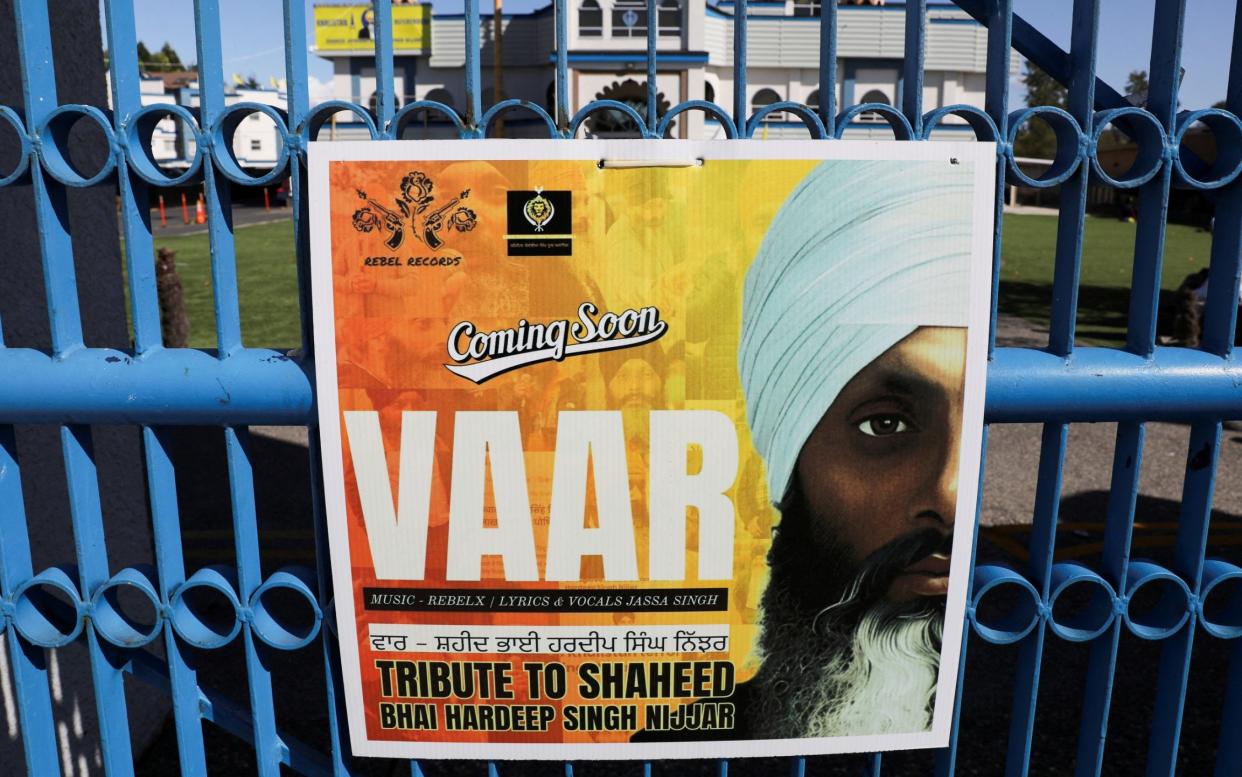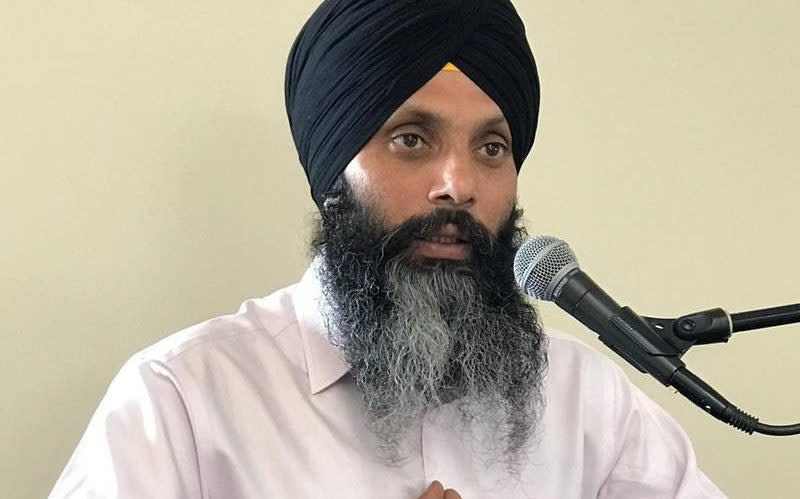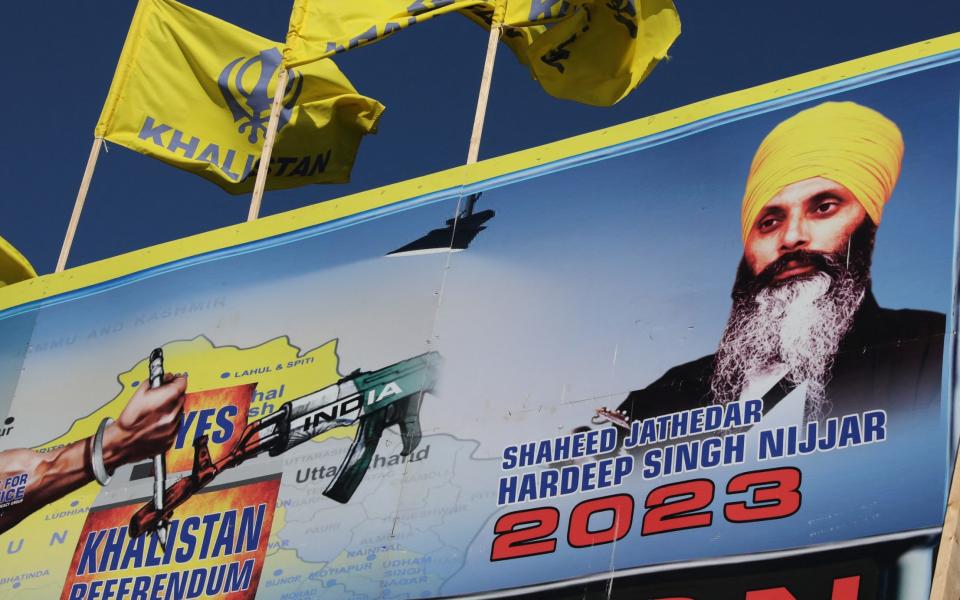UK backs Trudeau in call for answers from India over killing of Sikh activist

- Oops!Something went wrong.Please try again later.
Britain and the United States backed Justin Trudeau’s demand for answers from India over the killing of a Sikh activist on Canadian soil.
The Canadian prime minister said his nation will “hold people to account” and called on India to take the matter “with the utmost seriousness”.
Mr Trudeau’s announcement that Canadian intelligence agencies were pursuing credible allegations of New Delhi’s links to the shooting of Hardeep Singh Nijjar has provoked outrage in India.
But Canada said it had spent months evaluating the evidence and worked “very closely” with the United States on intelligence that Indian agents were linked to the killing of the 45-year-old in British Columbia in June.
James Cleverly, Foreign Secretary, said Britain wanted India’s “full cooperation” with Canada in the inquiry.
America’s National Security Council spokesman, Adrienne Watson, said Washington was “deeply concerned about the allegations” and said it was “critical that Canada’s investigation proceed and the perpetrators be brought to justice”.
Narendra Modi’s government has quickly dismissed the allegation as absurd and expelled a Canadian diplomat, further worsening already poor diplomatic relations between the two G20 members.

The accusation that India is implicated in the political assassination of a Canadian national on Canadian soil has already derailed protracted trade talks between the countries.
Mr Trudeau said he was “simply laying out the facts as we understand them”, and insisted the country wants “to work with the government of India to lay everything clear and to ensure that there is proper process.”
He said Canada was going to “remain calm, we’re going to remain grounded in our democratic principles and values, and we’re going to follow the evidence and make sure that the work is done to hold people to account”.
Mr Nijjar’s son, Balraj, said he had always suspected India was behind the shooting of his father by two masked gunmen as he sat in his car.
“It was just a matter of time for when the truth would come out,” he said.
Mr Nijjar was a prominent campaigner for the creation of an independent Sikh homeland called Khalistan in India’s northern state of Punjab.
The Khalistan campaign is strongly opposed by India, but calls for a separatist homeland have intensified in recent years among the Sikh diaspora in Canada, the UK and elsewhere.

India designated Mr Nijjar as a “terrorist” in 2020 and has long been unhappy over Sikh separatist activity in Canada, which has the largest population of Sikhs outside Punjab.
Delhi accuses Ottawa of failing to tackle the issue because Sikhs are a politically influential group.
On Tuesday, Kemi Badenoch, the UK Trade Minister, told a parliamentary committee that a deal with India is “close” and an agreement could be reached this year, but the final part of negotiations are always the hardest.
Canada and Britain are home to the largest diaspora of Sikhs, where many emigrated to flee violence in the 1970s and 1980s in the Indian state of Punjab that killed thousands.
India complained to the UK Government earlier this year after Sikh separatists detached the Indian flag from the country’s high commission in central London.
Michael Kugelman, director of the South Asia Institute of the Wilson Centre think tank, said the accusation of political assassination would reverberate across Sikh communities in the West.
He said: “There will be concerns for sure about safety issues, but also about broader people-to-people implications, such as getting visas to go to India.”
He predicted that Western governments like the UK with large numbers of Sikhs would find a “delicate diplomatic challenge at play”.
“How to balance the imperatives of strategic partnership with New Delhi with freedom of speech and rule of law considerations at home that New Delhi won’t accept as a reason for not sufficiently addressing Indian concerns.”

